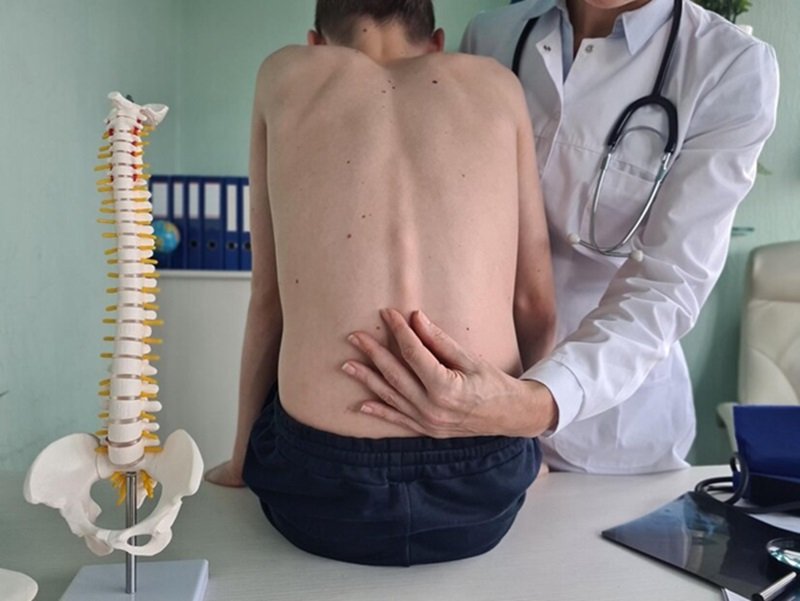Back pain can throw off your daily routine so much that even the most straightforward things seem impossible. People with listhesis, in which one vertebra slips out of place with the others, often have problems more than just pain. They may also have trouble moving around, nerve-related symptoms, and mental problems. There weren’t many treatment choices in the past, and most of the time, people had to go through significant surgeries with long healing times. However, minimal invasive spine surgery in Thane has changed how spinal diseases like listhesis are treated. MISS gives people a safe and effective way to improve their quality of life using advanced technology and precise methods.
This article will talk about the different types of listhesis, the fantastic benefits of MISS, and how this advanced treatment is changing patients’ lives worldwide.
- Learn Listhesis:
Listhesis occurs when one vertebra slips forward over the other, misaligning the spine. Slippage and nerve compression might worsen this issue. Listhesis can result from age, tension, or an injury. The problem can be degenerative, which affects older persons, or isthmic, which occurs when vertebrae shatter under stress.
Listhesis can produce mild discomfort to incapacitating agony. Frequent symptoms include long-lasting lower back pain, stiffness, tingling, and difficulty standing or walking. Listhesis can damage nerves, weaken muscles, or prevent bladder and bowel control in severe situations. You must understand listhesis to choose the optimal therapy from NeuroSpine Thane, which relies on how severe your symptoms are and how they impair your quality of life.
- Less-Incision Spine Surgery
By offering open therapies, minimal invasive spine surgery in Thane has altered spinal illness therapy. This innovative approach minimises muscle and tissue damage. Traditional procedures include larger incisions and muscle retraction, unlike this. MISS employs endoscopes, tube retractors, and imaging technologies to reach the problem region precisely.
MISS helps with listhesis, it works well with minimal damage, whether the illness requires spinal decompression to alleviate nerve pressure or spinal fusion to stabilise the spine. NeuroSpine Thane’s this method is the gold standard for treating herniated discs, spinal stenosis, and listhesis. It’s increasingly popular since it treats back pain and reduces surgical recovery time and complications.
- How minimal-incision spinal surgery works?
MISS combines advanced technology and sophisticated surgery to cure back disorders with minor tissue damage. A complete study, including imaging tests like X-rays, CT scans, and MRIs, helps the surgeon assess the listhesis and plan the operation.
Surgery involves making tiny incisions to insert specific instruments into the damaged region. Tubular retractors keep wound muscles and tissues out of the way, allowing surgeons to operate more accurately. The procedure may include spinal decompression, which removes bone or tissue pressing on nerves, or spinal fusion, which permanently connects two or more vertebrae.
Surgical imaging ensures proper surgery. The treatment typically causes little discomfort and allows patients to walk on the same day. MISS patients recover in weeks, but open therapy patients may take months. This more straightforward approach is another reason spine physicians and patients choose MISS.
- Why less invasive spine surgery helps listhesis?
MISS is preferable for treating listhesis and other spine issues for numerous reasons. All love that it recovers faster than standard surgery, so individuals can return to work and other everyday duties faster. Busy folks or those with demanding occupations would like this.
Reduced surgical discomfort is another advantage. Minimal wounds and muscle damage make recovery less painful and require fewer medicines. More minor cuts reduce the risk of infections and excessive bleeding, which are more common in open procedures.
Listhesis patients can recover to pain-free living quicker and maintain spine stability. MISS has revolutionised spine treatment by relieving pain and reducing surgical risk.
- Who benefits from minimally invasive spine surgery?
Minimal invasive spine surgery in Thane is a good option for those whose symptoms don’t improve with physical therapy, medications, or lifestyle modifications. People with significant slippage, considerable nerve compression, or chronic pain that doesn’t respond to existing therapies may benefit from this procedure.
Sportspeople and those in physically demanding vocations benefit from MISS’s shorter break. The patient’s health, listhesis severity, and treatment goals determine whether they can have the operation. Talk to a spine professional to decide if MISS is best for you.
- Minimal Access Spine Surgery Myths
MISS is growing more popular, but misconceptions might prevent patients from pursuing this successful therapy. A common misconception is that MISS only helps mild back ailments. MISS treats even severe conditions like advanced-stage listhesis successfully.
Another myth is that MISS outcomes are inferior to open surgery. However, studies demonstrate that MISS can provide equal, if not superior, outcomes with quicker recovery and fewer issues. Some patients assume MISS is unproven and new. However, MISS is an FDA-approved spine care treatment with a proven history of efficacy.
More individuals can feel comfortable considering MISS for back pain by dispelling these beliefs.
- Preparing for and recovering from minimally invasive spine surgery
Preparation and healing are crucial to treat listhesis with MISS. Before surgery, patients visit with their surgeon and undergo medical tests to diagnose their condition. Healthy habits like quitting smoking and staying active can help surgery go well.
Recovery after surgery involves treatment and progressively returning to regular daily routines. People claim physical therapy strengthens and stretches their backs. Patients should also observe their surgeon’s wound care and activity restrictions for optimal recovery. Follow-up appointments allow surgeons to monitor development and treat concerns immediately.
Conclusion:
Listhesis sufferers may always be in discomfort and immobile. Fortunately, minimally invasive spine surgery is a novel approach. It produces astonishing effects using cutting-edge technology and meticulous attention to detail. MISS helps chronic pain patients live again with faster healing, fewer risks, and spinal stability restoration. Discussing MISS with a spine specialist may help you overcome listhesis. Since a healthy spine improves your life, this innovative approach will help you have a better and busier future.




